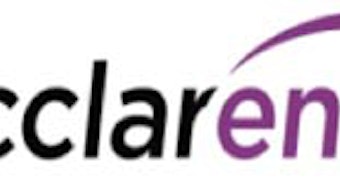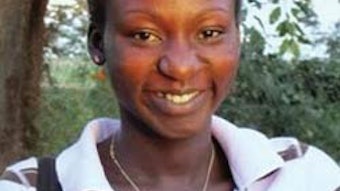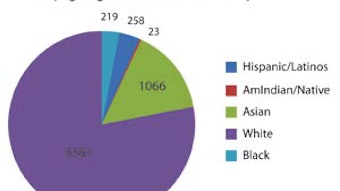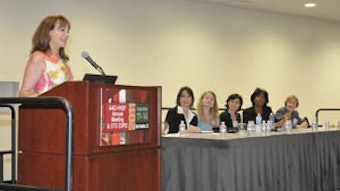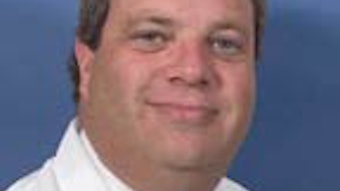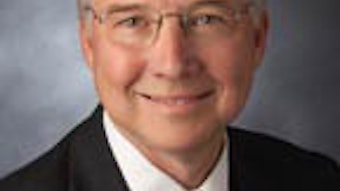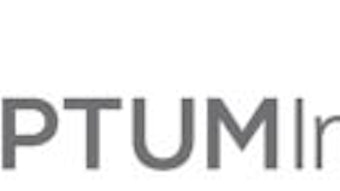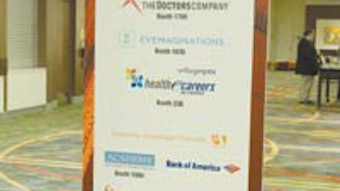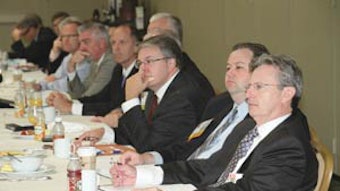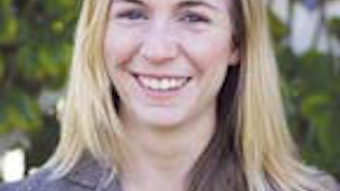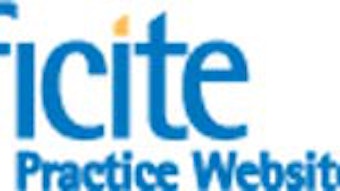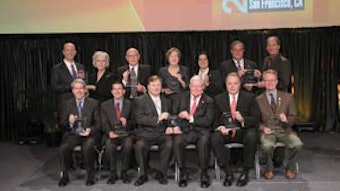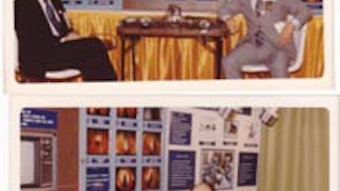The Evolution of Giving
When I became a full fellow of the Academy in 1983, my first committee appointment was on the Insurance Advisory Committee. Never heard of it? It doesn’t exist anymore. Our final act as a committee was to recommend that it be permanently retired. It was an anachronism. For years, professional and other membership societies augmented their revenue streams with “affinity programs.” Many still do. These were offerings of benefits or services that members would ordinarily be interested in buying (not necessarily related to the mission of the society) that could be provided by the society with a little markup profit built in to subsidize the real mission. The Academy was no exception. One of the programs we offered was the ability for our members to purchase life and health insurance through an underwriter affiliated with the Academy who would pay us a dividend or commission for every insured. Adverse selection slowly reduced any benefit to the Academy or our members because members could buy less expensively elsewhere, with better local attention and local service, and only those who were unable to obtain affordable insurance opted for the Academy’s product. I remember Dr. John G. Campbell, the chair of that committee wistfully saying, “If every member of the Academy would voluntarily donate 2 or 3 or 5 percent of their net value to the Academy when they died, it wouldn’t harm their retirement or estate, we could get rid of this committee, and we would have the reliable funds we need to keep the Academy going in perpetuity.” He repeated that remark as he later became president of AAO-HNS and had to sign off on the annual budget. Many similar relationships with “endemic” (otolaryngology-related) and “non-endemic” (non-medical) partners have had varying levels of success in supporting the broad and continuously growing Academy and Foundation agendas. For example, it is essential that physicians—and especially surgeons—work closely with the industry and companies that produce the technology and tools we use to advance care for our patients. We have an exhibit hall at the annual meeting where this technology and advancing service can be observed and purchased. Revenue from our exhibit hall and unrestricted grants from our corporate friends help defray the cost of continuing education and improving healthcare. For 10 years, the Academy did not raise dues, while the increasing budget was balanced by increasing outside sources of revenue. The percentage of the Academy’s budget funded by dues dropped from around 37 percent to a low of 19 percent. But several years ago, your Academy and Foundation leaders courageously decided to “take back ownership” of our Academy. We cannot be optimally effective if reliant upon fluctuating, unpredictable, or unsustainable revenue sources, illustrated by the recent economic downturn. Knowing that we need more stability, we committed to the building of an endowment that will sustain the long-term, focused, relevant, and mission-critical activity that we as members expect and deserve. Although it has taken many years of planning, establishing leaders, generating initial large gifts, and creating a culture of giving back to the profession we love, we are experiencing steady growth and increasing strength through this endowment. The dictionary defines an endowment as a “gift, grant, or bequest.” In the financial sense, it implies a charitable contribution associated with an emotional or personal tie to an institution, organization, or entity whose mission is important to the donor. We have been richly blessed over the last several years as we have moved from the “silent phase” of our endowment to openly embracing new donors, to where we have many warm, generous, committed, and passionate otolaryngologists advancing the specialty through their philanthropy. And the support is coming from every segment of our membership. The community-based otolaryngologist, the academician, our residents and fellows, our Diversity Committee and members, the young physicians, those close to retirement, our Women in Otolaryngology Section, many of our international leaders, and even Academy and Foundation staff have all shown inspiring leadership and generosity. Their gifts have been more valuable than the dollar amount they have given. The circumstances of their gifts, the willingness to give in the name of another valued colleague, friend, or mentor, and their willingness to promote the culture of philanthropy have all contributed to a growing pride of ownership of our members in their society and a desire to make a planned gift for the next generation. As a member of the Academy and Foundation Boards of Directors, I am pleased to add my name to the list of Hal Foster, MD, Endowment Society Founding Donors, and to be part of the 100 percent membership of your Board of Directors in the Millennium Society. As we approach the end of the year, I encourage you to consider the great legacy you have inherited from those leaders who have gone before you and decide what level of gift you can leave to those who follow. I add my thanks to that of your dedicated staff for your loyalty, devotion, and dedication to providing the best otolaryngology care in the world.
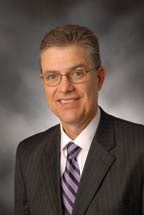 David R. Nielsen, MD, AAO-HNS/F EVP/CEO
David R. Nielsen, MD, AAO-HNS/F EVP/CEOWhen I became a full fellow of the Academy in 1983, my first committee appointment was on the Insurance Advisory Committee. Never heard of it? It doesn’t exist anymore. Our final act as a committee was to recommend that it be permanently retired. It was an anachronism.
For years, professional and other membership societies augmented their revenue streams with “affinity programs.” Many still do. These were offerings of benefits or services that members would ordinarily be interested in buying (not necessarily related to the mission of the society) that could be provided by the society with a little markup profit built in to subsidize the real mission.
The Academy was no exception. One of the programs we offered was the ability for our members to purchase life and health insurance through an underwriter affiliated with the Academy who would pay us a dividend or commission for every insured. Adverse selection slowly reduced any benefit to the Academy or our members because members could buy less expensively elsewhere, with better local attention and local service, and only those who were unable to obtain affordable insurance opted for the Academy’s product.
I remember Dr. John G. Campbell, the chair of that committee wistfully saying, “If every member of the Academy would voluntarily donate 2 or 3 or 5 percent of their net value to the Academy when they died, it wouldn’t harm their retirement or estate, we could get rid of this committee, and we would have the reliable funds we need to keep the Academy going in perpetuity.” He repeated that remark as he later became president of AAO-HNS and had to sign off on the annual budget.
Many similar relationships with “endemic” (otolaryngology-related) and “non-endemic” (non-medical) partners have had varying levels of success in supporting the broad and continuously growing Academy and Foundation agendas. For example, it is essential that physicians—and especially surgeons—work closely with the industry and companies that produce the technology and tools we use to advance care for our patients. We have an exhibit hall at the annual meeting where this technology and advancing service can be observed and purchased. Revenue from our exhibit hall and unrestricted grants from our corporate friends help defray the cost of continuing education and improving healthcare. For 10 years, the Academy did not raise dues, while the increasing budget was balanced by increasing outside sources of revenue. The percentage of the Academy’s budget funded by dues dropped from around 37 percent to a low of 19 percent.
But several years ago, your Academy and Foundation leaders courageously decided to “take back ownership” of our Academy. We cannot be optimally effective if reliant upon fluctuating, unpredictable, or unsustainable revenue sources, illustrated by the recent economic downturn. Knowing that we need more stability, we committed to the building of an endowment that will sustain the long-term, focused, relevant, and mission-critical activity that we as members expect and deserve. Although it has taken many years of planning, establishing leaders, generating initial large gifts, and creating a culture of giving back to the profession we love, we are experiencing steady growth and increasing strength through this endowment.
The dictionary defines an endowment as a “gift, grant, or bequest.” In the financial sense, it implies a charitable contribution associated with an emotional or personal tie to an institution, organization, or entity whose mission is important to the donor. We have been richly blessed over the last several years as we have moved from the “silent phase” of our endowment to openly embracing new donors, to where we have many warm, generous, committed, and passionate otolaryngologists advancing the specialty through their philanthropy. And the support is coming from every segment of our membership. The community-based otolaryngologist, the academician, our residents and fellows, our Diversity Committee and members, the young physicians, those close to retirement, our Women in Otolaryngology Section, many of our international leaders, and even Academy and Foundation staff have all shown inspiring leadership and generosity. Their gifts have been more valuable than the dollar amount they have given. The circumstances of their gifts, the willingness to give in the name of another valued colleague, friend, or mentor, and their willingness to promote the culture of philanthropy have all contributed to a growing pride of ownership of our members in their society and a desire to make a planned gift for the next generation.
As a member of the Academy and Foundation Boards of Directors, I am pleased to add my name to the list of Hal Foster, MD, Endowment Society Founding Donors, and to be part of the 100 percent membership of your Board of Directors in the Millennium Society. As we approach the end of the year, I encourage you to consider the great legacy you have inherited from those leaders who have gone before you and decide what level of gift you can leave to those who follow. I add my thanks to that of your dedicated staff for your loyalty, devotion, and dedication to providing the best otolaryngology care in the world.
